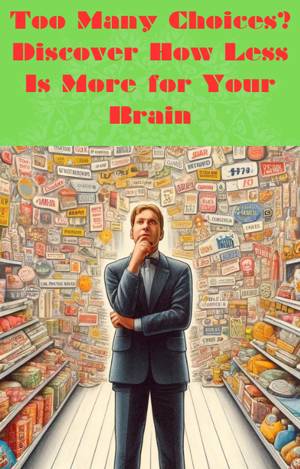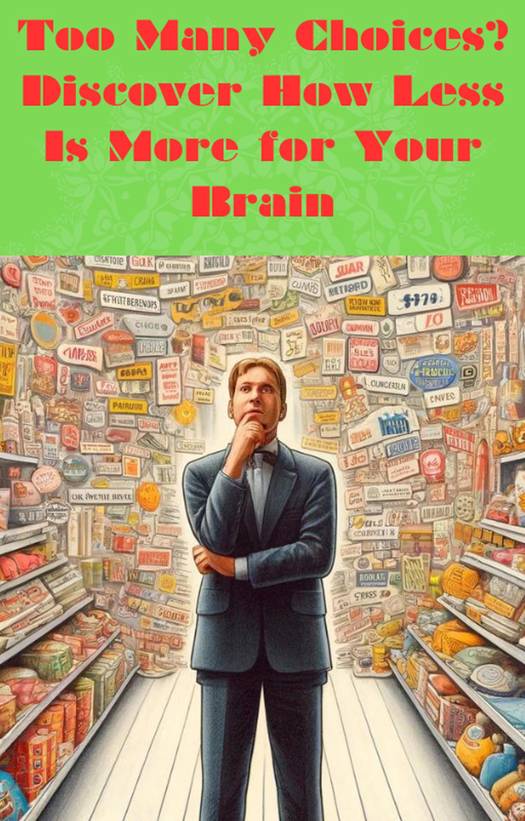
- Afhalen na 1 uur in een winkel met voorraad
- Gratis thuislevering in België vanaf € 30
- Ruim aanbod met 7 miljoen producten
- Afhalen na 1 uur in een winkel met voorraad
- Gratis thuislevering in België vanaf € 30
- Ruim aanbod met 7 miljoen producten
Omschrijving
In our modern world, choice is celebrated as a symbol of freedom and autonomy, a pillar upon which market economies stand. Yet, the abundance of choices available to us in every aspect of our lives—from the clothes we wear to the food we eat, and even the careers we pursue—can sometimes lead to a perplexing dilemma. This dilemma is encapsulated in what has come to be known as the "paradox of choice." This concept, first introduced by American psychologist Barry Schwartz, suggests that while having options is theoretically good, an overabundance can lead to less satisfaction and more stress.
The paradox of choice posits that beyond a certain threshold, an increase in the number of choices will not only fail to benefit us but may even begin to harm our ability to make decisions. This phenomenon can be seen in everyday scenarios, from a simple visit to the grocery store where one is faced with fifty types of olive oil to more complex decisions like choosing a healthcare plan. Each additional option adds a layer of complexity to the decision-making process, potentially leading to anxiety, decision fatigue, and a general sense of dissatisfaction with one's choice, no matter how well-considered it may be.
The root of this paradox lies in our cognitive and emotional response to making decisions. The more options we have, the higher our expectations become, and the greater the potential for regret over the path not taken. This can turn what should be a positive experience—exercising our freedom to choose—into a source of dissatisfaction and regret.
Understanding the dynamics of the paradox of choice is essential not only for individuals looking to navigate their daily lives more comfortably but also for businesses aiming to enhance customer satisfaction and drive sales. By examining this concept through various lenses, including psychological studies like the notable jam experiment, we can begin to understand the intricate balance between having enough choices to feel empowered and so many that we feel overwhelmed.
Specificaties
Betrokkenen
- Auteur(s):
- Uitgeverij:
Inhoud
- Taal:
- Engels
Eigenschappen
- Productcode (EAN):
- 9798224048649
- Verschijningsdatum:
- 2/06/2024
- Uitvoering:
- E-book
- Formaat:
- ePub

Alleen bij Standaard Boekhandel
Beoordelingen
We publiceren alleen reviews die voldoen aan de voorwaarden voor reviews. Bekijk onze voorwaarden voor reviews.











